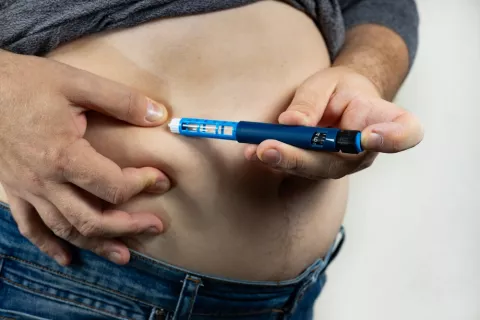The R21/Matrix-M vaccine for the prevention of malaria is the long-awaited second vaccine that the World Health Organization (WHO) has recommended to combat this infectious disease, after the RTS,S/AS0 vaccine (Mosquirix), which It received its recommendation in 2021 but whose availability was limited to cover the large number of children in vacu. Both drugs have proven safe and effective in preventing malaria in children and, when administered to a broad population group, are expected to have a major impact on public health.
Malaria is a disease transmitted by mosquitoes that especially affects children in the African Region, since almost half a million children die from it every year, according to WHO estimates. The recommendation of this new vaccine has been based on the positive opinion of the WHO Strategic Advisory Group of Experts on Immunization (SAGE) and the Malaria Policy Advisory Group (MPAG) and has been endorsed by the Director-General of the WHO after its biannual meeting held from September 25 to 29.
“The two vaccines, delivered at scale and widely deployed, can help strengthen malaria prevention and control efforts and save hundreds of thousands of young lives in Africa”
“As a malaria researcher, I used to dream of the day when we would have a safe and effective malaria vaccine. Now we have two,” said Dr. Tedros Adhanom Ghebreyesus, Director-General of the WHO. Only about 18 million doses of the first vaccine were estimated to be available until 2025. “Demand for the RTS,S vaccine far exceeds supply, making this second vaccine a vital additional tool to protect people more quickly.” more children and get closer to our vision of a malaria-free future.”
Dr. Matshidiso Moeti, WHO Regional Director for Africa, has stressed the importance of this recommendation for the continent: “This second vaccine has real potential to close the enormous gap between supply and demand. “The two vaccines, delivered at scale and widely deployed, can help strengthen malaria prevention and control efforts and save hundreds of thousands of young lives in Africa from this deadly disease.”
Following SAGE advice, WHO has also issued recommendations for new dengue and meningitis vaccines, along with vaccination schedule and product recommendations for COVID-19, as well as key immunization programmatic recommendations on polio, IA2030 and the recovery of the immunization program.
What is the R21 malaria vaccine like?
The updated WHO malaria vaccine recommendation is based on data obtained from an ongoing clinical trial of the R21 vaccine and other studies, which have shown:
-
High effectiveness when administered just before the season of high transmission: In areas with highly seasonal malaria transmission – which is largely limited to four or five months per year – the R21 vaccine was shown to reduce symptomatic cases of malaria in 75% during high season. 12 months after a 3-dose series. A fourth dose administered a year after the third maintained efficacy. This high efficacy is similar to the efficacy demonstrated when RTS,S is administered seasonally.
-
Good efficacy when administered in an age-based schedule: The vaccine showed good efficacy (66%) for 12 months after the first three doses. A fourth dose a year after the third maintained efficacy.
-
High impact: Estimates from mathematical models indicate that the public health impact of the R21 vaccine is expected to be high in a wide range of malaria transmission settings, including those of low transmission.
-
Cost-effectiveness: At prices between US$2 and US$4 per dose, the cost-effectiveness of the R21 vaccine would be comparable to other recommended malaria interventions and other childhood vaccines.
-
Similarity between R21 and RTS,S vaccines: The two WHO-recommended vaccines, R21 and RTS,S, have not been tested in a head-to-head trial. To date there is no evidence to show that one vaccine works better than the other. The choice of product to be used in a country should be based on programmatic characteristics, vaccine supply, and vaccine affordability.
-
Safety: The R21 vaccine was shown to be safe in clinical trials. As with other new vaccines, safety monitoring will continue.
Next steps for the second recommended malaria vaccine, R21/Matrix-M, include completing the ongoing WHO prequalification that would allow international procurement of the vaccine for broader rollout.
At least 28 countries in Africa intend to introduce a WHO-recommended malaria vaccine into their national immunization programs. Gavi, the Vaccine Alliance, approved providing technical and financial support to implement malaria vaccines in 18 countries. The RTS,S vaccine will be rolled out in some African countries in early 2024, and the R21 malaria vaccine is expected to be available in mid-2024.
Source: World Health Organization (WHO)












